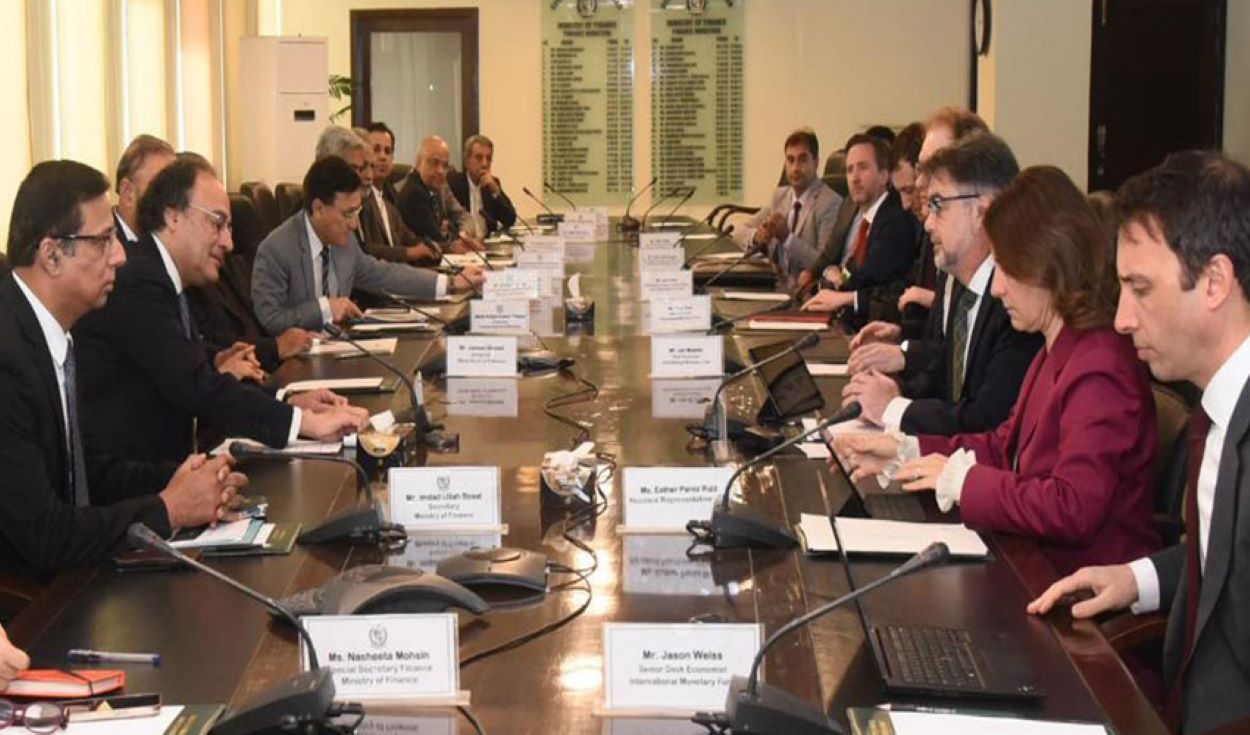The IMF team visiting Pakistan voiced dissatisfaction with the premature announcement by the Ministry of Finance, claiming the achievement of all structural benchmarks and targets ahead of the IMF’s review. This announcement came before the IMF could analyze Pakistan’s economic data under the $3 billion Standby Arrangement (SBA) program.
Nathan Porter, the IMF Mission Chief, and his team were displeased by the ministry’s early verdict ahead of the IMF’s thorough evaluation process.
Before discussions on Wednesday, the finance ministry declared, through a press release, its compliance with all IMF benchmarks without waiting for feedback from the Fund.
Inquiries to the ministry spokesperson went unanswered.
During initial review talks, the IMF scrutinized the finance ministry’s claims, leaving officials at a loss for responses, as reported by The News.
Finance Minister Aurangzeb acknowledged the oversight, ensuring it wouldn’t recur.
With talks underway for the second review and a Memorandum of Economic and Financial Policies (MEFP) agreement, which could lead to a $1.1 billion tranche release in April 2024, speculation about a possible mini-budget arose. Officials hinted at potential tax rate increases, including the General Sales Tax (GST), to meet immediate revenue needs, contingent on tax collection performance.
The IMF inquired about the feasibility of meeting the annual tax goal of Rs9,415 billion and questioned the timing for a simplified retail tax scheme, receiving no concrete answers from FBR officials.
Energy sector discussions focused on curbing circular debt growth, with the Ministry of Energy proposing subsidy removals for fertilizer plants and seeking guidance on affordable fertilizers for farmers.
The IMF’s demands included stopping revolving credit for utilities and immediate theft reduction in the electricity and gas sectors. They advocated halting power plants’ gas supplies and stressed the Federal Board of Revenue’s (FBR) digitalization.
They urged the privatization of Distribution Companies (DISCOs) and sought a definite timeline for this transition.
Concerned about rising commodity prices in Pakistan, the IMF delegation called for measures to align local prices with global trends and curb inflation.
Pakistani officials pledged to leverage technology for tax efficiency and integrate various sectors into the tax regime to enhance revenues.
FBR Chairman Amjad Zubair Tiwana and the Finance Minister committed to meeting the fiscal year’s tax target, aiming to avoid a mini-budget and ensuring cooperation with the IMF’s reform demands.
The final $1.1 billion installment’s release depends on the successful second economic review, which is critical for Pakistan’s economic direction.






